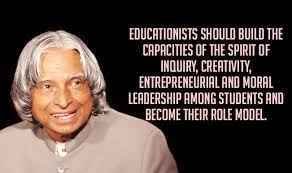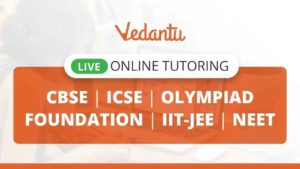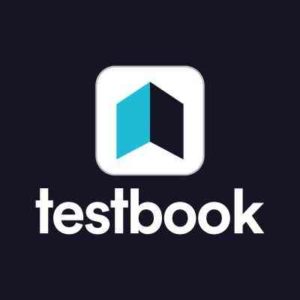THE BUSINESS OF EDTECH STARTUPS IN INDIA

Quotes by our former Indian President late Dr APJ Abdul Kalam
“The Indian education system, like the Indian bureaucratic system, is Victorian and still in the 19th century. Our schools are still designed to produce clerks for an empire that does not exist anymore.” Quote by Sugata Mitra

While browsing the net, the other day, I discovered both these quotes. One is of our Ex-President Late Dr Abdul Kalam and the other one by Mr Sugata Mitra on the Indian education system. This made me go into the details of the education system in India, its age-old practices and its evolution into the digital era.
Indian education system which always has been an interesting subject in forums, debate session, parliament and coffee table discussion but also always had an element of controversy.
The right wing lobby, the left wing lobby and the lobby sitting on the fence, all have their own mindset, perception and interpretation and keeping the very cause of education to the back seat.
Since 1947 (from the time of our independence), we have come a long way and now into the digital era. The tech-savvy young entrepreneurs suddenly taking over the front seat replacing the traditional educationist / PhD holders/ Researchers.
A Smartphone and a tab with the application has replaced the long size notebook and school bags weighing 5 kg. Interestingly designed interactive apps taking place of the blackboard and the four walls of our age-old classroom.

The question arises now …
– Are we heading in the right direction?
– Or is it the renaissance of Indian Education?
In this blog-post, I tried to give a balanced and unbiased overview since it is an era of transition as per as Indian education system is concerned. It’s going to be a tightrope walking for the new generation edtech start-ups entrepreneurs.
A lot of new start-ups are joining the race and equally alarming is the rate of their closure after burning the funds of the investors.
To be successful in this new age education domain, an edtech start-ups entrepreneur requires to have an insight into the past practices in the profession and the overall ecosystem of education domain so that he can effectively move forward in his/her endeavour to make digital education successful in new India.

The education system in India and its past.

Indian education system has its roots in the traditional Gurukul concept where the scholars were residing in Guru’s ashram and learn from the Guru /the teacher who was providing the knowledge on various subjects besides Vedic customs, culture, discipline and self-help.

During the British Raj, the government set up the school concept that followed a defined curriculum and confined to subjects like language, science, mathematics and social science and since then imparting education was more a classroom driven and the same culture is still prevalent.
The post-independence era witnessed the same practices with modern school infrastructure developing in cities and towns whereas rural India still continued with “ Pathshala “ /local village schools.

Since 1947, the leadership of the nation did realize that for a developing nation driven by mixed economy practices needs a strong foundation of education and schooling at the ground zero level but except cosmetic change and development in the education sector, the implementation of the vision was limited on the drawing board only with limited progress.

Successive government and administration failed in the educational sector because of lack of vision, quality drive and courage to walk the talk.
The education system in India and its dynamics.

Indian history, culture and practice always placed “Education” as a noble and respected profession and the people associated with it always had recognition and standing in society and the subject was never measured in commercial terms.
The socio-political focus of education right since independence that it is a welfare driven subject always and never been treated as a commodity. It is a means of imparting knowledge to the young citizens of the country which is still in the development phase. The perception is still prevalent.
In 2014, India’s global education map slipped to 93 ranking and a series of scams faced by the Indian education sector around the same time called for immediate reforms in our education system.
Our Education practices have always been synonymous with ‘Examinations’, ‘Board Exams’, ‘ Joint Entrance Exams’, ‘Marks’, etc. A student in India is left with the options of choosing from Science, Humanities or Commerce after he/she finishes his tenth grade and skill and application-based education which was the need of the hour all through always completely missing.

Moreover, education was always treated as a social responsibility of the administration and they failed to link it with the economy and national development.
Current Trends in the education sector.
With the advent of IT sectors in India, right from the beginning of 21 st century qualified tech-savvy Indian entrepreneurs slowly moved into the Educational domain to bring in the changes.

Conventional classroom routes getting changed to E routes through the digital platform. Thanks to the recently introduced “Digital India Initiative “by the government and the next 3 to 5 year would likely to see an uptrend in this space by edtech start-ups companies.
Introduction of ED Tech in education
As per the latest study, by 2021, the size of the Ed Tech market is expected around the US $ 1.96 billion with a projected 9.6 million internet users and it is still growing, The figures making it all the more lucrative proposition for the budding Ed Tech entrepreneur.

The Indian education system has slowly moved from traditional pedagogy to computerized learning. The sector has witnessed a significant commercial & technological growth in the form of more edtech start-ups initiating their venture in this space.
How Edtech is taking over the traditional education system

India today has around 1.5 million K-12 schools infrastructure catering to a student base of about 253 million. We have about 700 universities and 35000 colleges. 85 per cent of average Indian students enrolled in regular degree course and one-sixth of the total student population passing out of high school education (the above average ones) get into engineering colleges.

These together constitute 30 per cent of the student population and balance 70 per cent of the student population put a stop after the basic schooling.
People to Teachers ratio in the basic schooling level is 24:1 and in the secondary school level, it is 27:1 which is not encouraging and resulting in a compromise situation.
Young generations are thus deprived of a complete learning experience resulting in a massive drop out starts after basic schooling and “Right to Education” holds well only on governmental documents.

Though the government takes initiative in opening up more IITs, NITS, IIMS and medical colleges to improve the quality of higher education but the basics are yet to be set right.
With the advent of IT and technology in the new millennium, the Ed tech company’s and start-ups sensed the good opportunity available in the current space of education domain and ventured there identifying their own niche.

Few other major factors also paved the way like ” India’s current Smartphone culture, cheaper internet cost, no geographical barrier, the technology that outsmarting the conventional classroom teaching by making the student more engaged and innovative, the convenience of learning anywhere /anytime .. Etc. Last but not the least this new sector receiving a tremendous support from angel investors both from the domestic and international market. To know more on ed tech ( education technology) refer Wikipedia.
Few leading edtech startups in India today:
The edtech start-ups are categorized broadly into three categories, depending on their specialization, passion and activities in their respective niche. As per the Hacker Street, an online publishing house there is more than 40 plus active companies at present
In this post, I have only taken 11 of them into consideration randomly (at my discretion) and not in terms of the merit. Broadly the categories of edtech start-ups are as follows.
- Edtech start-ups specializing in K 12 education.
- Edtech start-ups preparing the scholars for competitive examination.
- Edtech start-ups specializing in professional training courses.
Edtech startups specializing in K 12 educations.
BYJU’S (Promoted by Think and Learn Pvt Ltd)

Image Source: Youtube
BYJU’S, essentially a very popular Smartphone learning app is a brand by itself, promoted by “Think and Learn PVT ltd”, founded by Mr Byju Raveendran.
The game-changing app was introduced in 2015, primarily catering to school students from IV to X11 standards Today the BYJU’S app has approx 15 million user base and 9 lac annual subscribers across the country.
Headquartered in Bangalore, the company also has ventured into training high school students for IIT-JEE, CAT, NEET along with GRE, GMAT, IAS preparation and training for the university going students.
The company runs on a paid subscription business model (users require to pay for the contents) and quite successful on the business front.
Today the major stakeholders in the company are Chan Zuckerberg initiative, Sequoia capital, Sofina, Lightspeed Venture partners, Verlinvest, Aarin Capital and Times Internet.
VEDANTU (Promoted by Vedantu Innovations Pvt Ltd)

Image Courtesy: Youtube
Vedantu is a live online tutoring platform for students from 6th standard to high schooling. Founded by 4 IIT IANS, namely Mr Vamsi Krishna, Mr Saurabh Saxena, Mr Pulkit Jain and Mr Anand Prakash in the year 2011. The company is having its HQ in Bangalore.
Vedantu offers an interactive online tutoring platform for teachers and students alike and makes the learning experience more interesting.
WAVE (Whiteboard Audio Video Environment) is an indigenous technology built in-house by Team-Vedantu which operates on a real-life “marketplace” model. The students can choose a teacher of his/her choice and learn at a preferred time of their choice. Both CBSE and ICSE curriculums are covered for the students in India and the Gulf.
In addition, It also provides online tutorials on science (Physics, Chemistry, Biology), English, Mathematics, Hindi, Sanskrit, German, French, Environmental Science, Computer Science and Social Science besides preparation course for IIT JEE, NTSE.& PSA ( Problem Solving Assessment) to name a few.
This interactive WAVE technology platform can operate at a very low internet bandwidth, thus making the reach wider even to rural India. It also makes the traditional offline learning more personalized through the online interactive platform on one to one basis.
Topper.Com

Image source: Topper.com
Founded by Mr Zishaan Hayath and Hemanth Goteti (both are ex IIT IANS) in the year 2013, Mumbai based Toppr.com provides an e-learning platform that provides the scholars with a personalized & adaptive learning process and practice to improve upon their rank. For each question attempted on Topper by a student, the speed, accuracy and goal completions are evaluated to prepare them better for the real-life test.
The company operates in the space between grades 5 to grade 12 board examination and provides assistance to the students preparing for IIT, NEET and Medical entrance tests … etc.
The salient features include a question bank of 40000 questions for IIT JEE, unlimited tests with instant feedback for the students, suggested practice test, rank comparison and 24X7 doubts clearing desk manned by a competent authority. Not the least the platform also has a mobile app, thus giving the scholars the flexibility of learning at their convenience.
Edtech startups preparing the scholars for competitive examination.
UNACADEMY

Image Source: Linkedin
Founded by Mr Roman Saini, Mr Hemesh Singh, Mr Sachin Gupta and Mr Gaurav Munjal in 2015, Unacadamy is an edtech company with HQ in Bangalore, providing one of India’s largest learning platforms.
Unacademy learning platform offering the scholars a host of 48 different competitive examinations ranging from UPSC CSE, state /provincial SE, Banks examination, IIT JEE, Pre-medical, GMAT, CAT, GATE, CSIR UGC Net and JEE Advance preparation, to name a few.
Today the learning platform has more than 1.3 million registered users, taught by a professionally managed team of educators (2000 plus) through online video tutorials and provide comprehensive study material.
To make the education more personalized, structured and result oriented, “Unacademy plus” was introduced consisting of approx 40 sessions of paid live class.
Unacademy also offers free education platform a part of their larger corporate goals and make the content of paid live classes available on the free platform. The company’s vision always was and always will be to make the best educational content available for free
NEOSTENCIL

Image Courtesy: Gekopedia.me
Founded by Mr Love Beejal and Mr Kush Beejal in 2014, the aim of the edtech start-up is to provide quality content and real-time learning experience to the scholars preparing various competitive exams such as IAS, IES, GATE, and state PCS (provincial civil services). The company has its head office in Gurgaon, NCR Delhi.
The inspiration behind “ Neostencil” was what both the brothers realized when they were scholars. “Not everyone can afford coaching classes at top institutions. Many people’s aspirations die because of lack of resources. This propelled us towards the idea of creating a platform that could be accessed by anyone, anywhere, without spending beyond his/her reach. The entire point was that learning should not stop at any cost.” – Said Mr Kush Beejal (quoted from yourstory.com)
Neostencil conduct live streaming of classes identical to the real-time experience of a classroom session at a reasonable cost at the comfort of their home and convenience of time.
All they require is an internet connection with a computer or Smartphone and rest of the things (course material & mock test evaluation) are taken care of by Neostencil.
Testbook.Com

Headquartered in Mumbai, Testbook.com was found by a group of IIT Ian’s from Delhi and Mumbai IIT in 2013. The promoters are Mr Abhishek Sagar, Mr Ashutosh Kumar, Mr Manoj Munna, Mr Narendra Agrawal, and Yadvendar Champawat
The platform offers the aspirants a whole range of competitive governmental/semi-governmental examination preparation through its well-designed test series and mock tests.
It offers an efficient means to prepare at an affordable cost. The mock tests conducted by test book always help the student to prepare well by giving an analysis of his/her weak and strong areas based on the performance.
As an added convenience the company has developed two apps for the students.
– Textbook App informs the latest trend & syllabus based Online Test Series with Examination alerts about 60plus governmental jobs and covering a wide range of subjects like Quantitative Aptitude, Logical Reasoning, English, General Awareness, Banking Awareness, Marketing Awareness, Computer Awareness, Placement Aptitude, Current Affairs, General Knowledge & Core Engineering Subjects.
– Daily Current Affairs & GK Quiz is a popular Current Affairs based app and assist the scholars to learn Current Affairs for Bank, SSC, Railways, Civil Services, MBA exams with the flexibility of learning in Hindi & English.
Startups specializing for a Professional training course
Simplilearn

Image Source: Twitter.com
The Bangalore based company having major operational set up in San Francisco, California was founded by Mr Krishna Kumar and Mr Kashyap Dalal in 2009, providing online training and certification in the professional discipline like cloud computing, digital marketing, cybersecurity, data science and so on.
State of the art training module, always updated by 2000 plus industry experts combining online classes, live virtual classroom, real-time project and 24X7 teaching assistants are the salient features of Simplilearn to up-skill the knowledge and development of various organizations across 150 countries.
LinkedIn has recognized Simplilearn as the 8th most influential education brand in the world.
In partnership with its customers (corporations), Simplilearn addresses their unique needs, providing training and coaching that helps working professionals achieve their career goals.
UpGrad

In the Year 2015, business tycoon Mr Ronnie Screwvala along with Mr Mayank Kumar, Mr Phalgun Kompalli and Mr Ravijot Chug founded Upgrad. Headquartered in Mumbai, Upgrad is a niche online education and training platform for the aspiring working professionals and organization to up-skill further and accelerate the career growth.
The vision of “Upgrad” is to Empowering individuals to reach their full professional potential in the most engaging learning environment. A young and bright team of 100 talented individuals from premier colleges and institutes around the globe are relentlessly pursuing towards the said mission Mr Ronnie Screwvala and other industry leaders also join at times in this Endeavour to provide guidance for achieving the success.
Currently, Upgrad offers the following course to organizations and the working professionals.
- “Start-up with Upgrad” is an online entrepreneurship programme.
- In collaboration with IIT Bangalore, it offers a post-graduate diploma in data analytics.
- Upgrad digital marketing programme.
- Product management.
- Upgrades “Machine learning and Artificial Intelligence” has received the no 1 ranking by Analytics India magazine and considered to be perfect for the working person looking for a change in their career and accelerating their professional growth.
The startup that helps to connect the Indian education community through its info-highway.
EDUGORILLA

Founded by Mr Rohit Manglik in 2016, an NIT graduate with a fortune 500 MNC background from a small town of Uttarpradesh. The idea of Edugorilla was born to Rohit owing to his passion for education.
Today the brand EduGorilla is synonymous with the one-stop solution for the education community in India. Be it the aspiring students and their parents, teachers and the institutes, this online platform delivers all the information required by the students along with their specific career related queries, study materials and also about the details of the coaching classes , institutes, schools and colleges across the country where the scholars can pursue their career goals.
Edugorilla offers a wide range of free courses for exams like CAT, UPSC, SSC, banking, IIT JEE and NEET etc to the students and also have an active panel for counselling. Students also can get on demand free videos and much more. For more details please visit edugorilla”s page at Edugorilla community
Challenges before the Ed Tech startups companies

Though the business projection as per the industry assessment reads interesting and the journey is not going to be easy as the bumpy roads will have an uphill task to be tackled by the enterprises and their owners who are well versed with technology and the tools but not with the subject per se.
– First and the foremost is the multilingual audience as India catering to diverse regional ethnicity.
There are more than 50 dialects spoken across the country and creating modules/apps in each language is indeed a challenge poses a big risk commercially.
– Cutthroat competition and free content available in the net always create hurdles for a subscription for tailor-made content on offer – as this is the primary revenue model on this trade.
– The next big challenge for an enterprise operating in the trade is lack of infrastructure and reach (rural areas are yet to benefit from e-learning platforms).
A report released by last all India Mobile Congress 2017 notes that the overall internet penetration is 33 per cent and the penetration in rural areas was negligible.

– Last but not least is the awareness and perception barrier towards this new technology-based method. People (students, parents and teachers) have a comfort zone for traditional “Tuition classes” and one to one interaction between the student and the teacher.
–
Standard Mistakes of any startup enterprises in India
Startup business has become the latest buzzword in the industry circle. There is a risk theory of business and the risk-taking onus lies on the entrepreneur and the better his personal calculation and judgement, better is the chance for him to succeed.
In India, new startups are opening every day and percentage of closure is equally alarming. Only a handful of them sustains and survives in the long run.
First and foremost problem with the start-up enterprises is without conducting a pilot study, understanding the market dynamics and proper business plans with plan B, one makes the beginning in business. To say in a lighter tone, a lot of time the start-up ventures are born over a coffee table discussion.

It is recommended that a startup entrepreneur should always have a seasoned mentor before investing his funds. Being only tech-savvy would not take you anywhere unless you have a basic skill of man management (customer, employees, vendors, reference groups/influencers … that constitute the marketplace ) and a good understanding of the specific business ecosystem, you are venturing in.
Major Mistakes by Entrepreneurs in ED Tech sector
Mistake 1.Starting an Ed tech enterprise without the knowledge and understanding the country’s education ecosystem
In addition to the common mistakes (explained above), an edtech start-ups owner should be by heart an educationist first than being an entrepreneur. As an Ed tech entrepreneur, you should have the knowledge, understanding of the country’s education ecosystem and its evolution since 1947 with a clear vision for the future.

In case you are not familiar with the public education system, its culture and practices, please have eminent educationists in your panel and take their inputs in every step, otherwise, your venture would likely to go down with no return.
Education industry in the country has a diverse audience and needs. Often the startup founders make an entry into this without knowing the dynamics of this sector nor they had ever worked in this domain.
Being inexperienced, they failed to assess the market size and its actual needs and the learning product they build often a mismatch, resulting in the closure of the venture burning their own/investors funds.
Solution: Do basic groundwork and make business plans with plan B
As an Ed tech company’s tech-savvy owner, know and understand your diverse audience (students, parents, teachers and the community ecosystem) first. Study the systems, perception, culture and existing practices and accordingly create a product with price offer that adds only value to all. And if you are not familiar with the education domain, please have a mentor to guide you throughout.
As an edtech startups entrepreneur, if you want to succeed in this new domain of education, then you must know the education community and their mindset well and so that you can work out the offerings/solutions better.
Mistake 2.Edtech start-ups may not have the required teachers and administrators inputs.

Image Source: Bamradio network
This is where the Ed tech sector’s going completely wrong. I do visit several edtech start-ups companies but rarely do I come across teachers/administrators (well versed with public education system) in the regular payroll. The usual sight inside the premises of Ed tech companies is a bunch of jeans-clad colleges pass out youngsters with the latest Android phone and MP 3 player and busy with the gadgets in the corridor.
Education is a serious subject as it builds the future generation for the nation. Technology and tools are the facilitators for communication to the target audience and that’s all and Ed tech companies are more of marketer and not educationists. And this has to change.
Solution: Get Teachers, Educationists and administrators on board
As an Ed Tech entrepreneur, you require having a sound understanding of the pedagogy of student, their mindset, and the learning process and then only you can build the right value proposition and product offering.

Ed tech companies specializing in online tutorial classes require quality teaching staff and content. And failure is guaranteed if these are missing resulting in the closure of the shop.
Only a professional HR policy and drive can save a company from making the wrong HR decision. And the need for quality teaching staff is must for a startup to survive

Only a qualified and experienced educationist can help you with independent inputs in your endeavour. So like it or not please have a well-defined HR policy to overcome the situation and bring in the experienced educationist in your business ecosystem for the sake of your business.
Mistake 3: Handling the educationists and teachers is a challenge for the businessman. Remember your school/college days and extend the same respect to the teachers /educationists working for you in your payroll.
As a businessman, you are always under financial pressure. The game of receivables and payables is on for you 24X 7. However, you require taking that extra care when you are interacting with the teacher /educationists in your payroll as they are the ones who would help you to build the right product. And a good product only succeeds in the marketplace in the long run.
Solution: Build a culture in your premises that are conducive for educational practices.
As you know that businessman and teachers are culturally poles apart and so is their language and conduct. The way you make a product is equally important as how you present it. The business world of yours may move fast, but education always runs slow.
So approach your educationist colleague with questions and requests than in a commanding tone. Think of your school days and maintain the same spirit while interfacing with your teachers who are your junior colleagues now.
Mistake 4: bottom line definition is always different for the teachers and businessman.
It’s indeed a big challenge for the entrepreneur as the profit motive is key to his business. On the contrary the bottom line for the teachers, school authority, parents and students that the Ed tech product must benefit the student, develop his skill and promote growth.
Solution: Balancing the bottom line definition.
As an Ed tech entrepreneur, you go into the tech business only for the right reasons. If your motive is primarily to make money, you are destined to fail.
So putting the “Student First”… and the pitch is to make the current education system better with the help of technology which can bring forth a better educational product offering the right value to the students and nurture their self-development skill at the convenience of their time and comfortable location at their home.
Mistake 5. Priority for good quality content.

User’s subscription and consistent growth in user’s base only can lead to success. Especially for those Ed Tech ventures specializing in conducting training through webinars and online test preparation.
Solution: Focus on quality content
Only quality content can attract the new users and retain the segment. Often the new startup failed to deliver the good content to the users resulting in negative growth and drying up the revenue resources.
Mistake 6: Lack of understanding of the right revenue model.
Ed tech startups backed by big-time investors normally offers a lot of freebies, free contents, and huge discount just to increase the user’s base. And that poses a big challenge to small edtech startups that are not backed by big-ticket investment.
Small and medium time operators following the same strategy often land up in loss because of the wrong revenue model. Instead of creating a niche segment with a niche product with a value proposition, they tend to get into the rat race of “Freebees” and suffer loss.
Solution: Create a niche product for a niche segment

The small and medium Ed tech set up should never get desperate for users base, subscription and go for huge discounts /freebies, instead put their focus on creating niche value product with a value proposition and undertake a strategic marketing campaign to reach the customer segment.
Mistake: 7 Lack of marketing knowledge & vision.
Today’s business is all about marketing and as an edtech start-up, you should have a 360-degree marketing plan to face of the competition. The basic marketing efforts start with segmentation and target market followed by the analysis of market mix and product positioning. This is the simple way to begin the marketing exercise, as taught by Dr Philip Kotler, the father of marketing.
In today ’s over competitive market scenario, Dr Kotlar even advised the “TTL … through the line which may include ATL &BTL (Traditional Marketing), New Age marketing and marketing through digital platforms, depending upon the context, competition and marketing budget in hand.

Building Brand is key to any marketing success in the long run. And a far-sighted marketing strategy is required to achieve the ends and it calls for time, investment and medium to long-term marketing vision, objectives and plans.
Solution: Have a professional marketing team at a place, along with your developer, techies, telesales and content writers.
A good website content and SEO exercise are not enough to generate leads for your subscription and user base. Have a long-term plan to build a brand, medium-term plan to consolidate your business and an immediate plan to undertake the planned marketing exercise with a defined marketing calendar right from the word Go.
Understanding, Conviction and Philosophy to Succeed
In golden words “Education “was never a commodity right from our “Gurukul days”. Respect our ancient history and culture. Imparting knowledge is the essence of our education system which has welfare cum social dimension which is deeply ingrained into our system and culture.

However, in the 21ist century, things have become different and every business has a bottom line principle. So the right approach to becoming a successful Ed Tech entrepreneur is to strike a balance between our ancient philosophy and practise on the subject with a refined and ethical business approach towards the same.

And finally to sum it up both public and private partnership covering all the segment of the society (be it government (HR ministry), Ed tech entrepreneur, School board, Teachers council, Universities, CII) is required for creating a right business environment for ED tech business sectors.
Education as a subject, profession and business where one cannot operate in isolation but work collectively to make it a success.
The success in the long term can be achieved through a community-driven effort where technology would provide the values in terms of “self-learning“, “ Defined product “ ( relevant for the nation and its economy) “faster and wider reach” with “cost effective “solution.

Ed Tech start-ups should have the same conviction and philosophy to make it good over the long run.
Diverse in nature and largest in Size, the education market in India still yet to be structured. Indian economy has moved within the top 6 economies in the world and the purchasing power of the people is on the rise.

In a nutshell, it offers a great opportunity for ED tech business. The edtech start-ups with a good understanding of the subject, market, marketing vision and business strategy bound to make it good.

My blog-post is addressed to new start-ups entrepreneur contemplating to make an entry into this domain, researcher, media and students who may be looking for a career in this sector. And I hope this would enable them a better insight into the industry.
The images used in this post are mostly from Pixabay ( free images). Due attribution extended to the images procured from other sources.
The images are used in order to make the post-reading more audience-friendly and I do not claim ownership of any images used in the post.